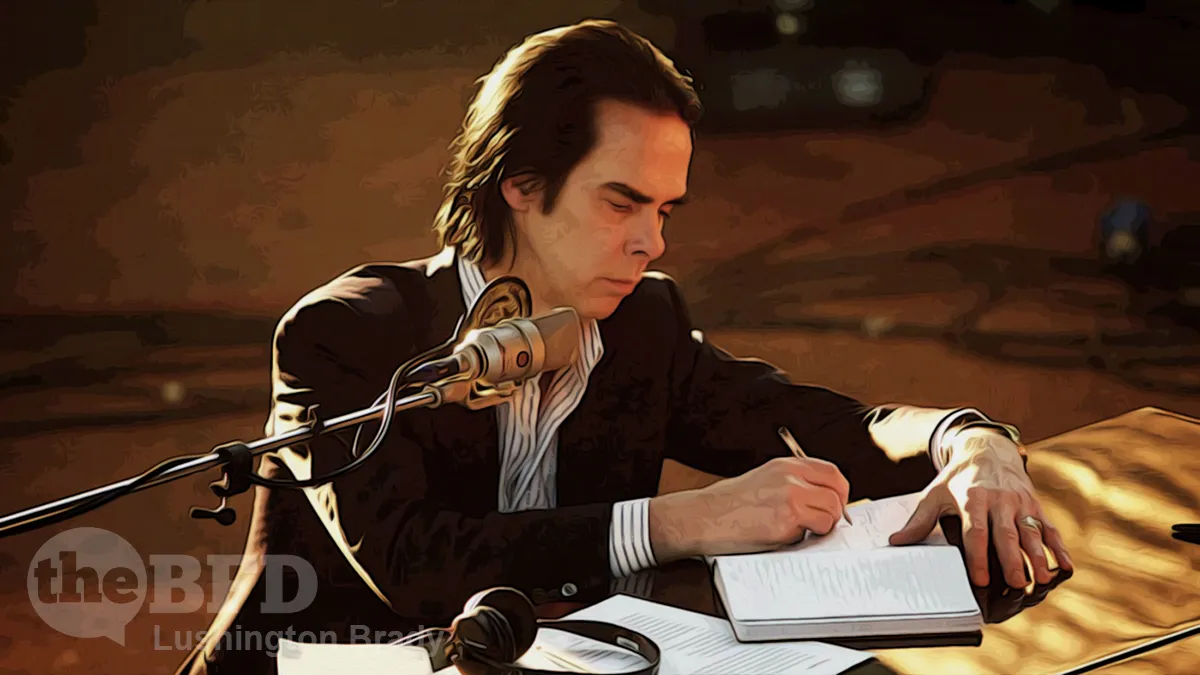Table of Contents
I can’t help but admire Nick Cave. While I personally (and I’ll admit that it’s purely a personal prejudice) think his musical output peaked in 1984 (From Her to Eternity), with some slightly lesser highlights along the way, and his output as a writer is generally wildly overrated, I must nevertheless tip my hat to an artist who is very much his own man. A rarity in the world of popular entertainment, music especially, where its much-vaunted “rebellion” consists mostly of constantly looking over their shoulders to see what everyone else is doing and saying, and artists live in terror of being seen to be out of lockstep.
From (re) embracing Christianity and going back to church, to declining to self-censor old lyrics employing now-verboten terms like “nigger” and “faggot”, Nick Cave somehow sails serenely above the storms of cancel culture. Perhaps it’s that over-used word, “genius”: rare, true geniuses are excused from conforming to the rules of their own milieu.
More likely it’s also because Cave responds to controversies with an obtuse yet polite eloquence that simply leaves the would-be cancellers baffled. When challenged by a fan over the old lyrics, Cave’s response boiled down to a simple, “No”. But that firm refusal was leavened with such prolix politeness that one senses the would-be inquisitors simply didn’t understand that they were being told where to go.
His response to the latest attempt to embroil him in faddish “controversy” is in much the same vein.
Rock star Nick Cave has hit back at fans who question why he is one of the 14 special guests of the Australian delegation at King Charles’ coronation.
From the screaming, violent banshee of the Birthday Party, Cave has evolved into an artist capable of telling people to f off, and making it sound like a benediction.
Writing in his newsletter Red Hand Files, in response to critical letters from fans, Cave says he holds “an inexplicable emotional attachment to the royals”.
He said he was “not a monarchist, nor am I a royalist, nor am I an ardent republican for that matter”.
“What I am also not is so spectacularly incurious about the world and the way it works, so ideologically captured, so damn grouchy, as to refuse an invitation to what will more than likely be the most important historical event in the UK of our age. Not just the most important, but the strangest, the weirdest,” he wrote.
While his peers are obediently sneering and chanting “Not my King” in unison (all while looking frantically about to make sure everyone else is saying the same thing), Cave blithely carves his own path.
He said he once met Queens Elizabeth II at Buckingham Palace and that she “seemed almost extraterrestrial and was the most charismatic woman I have ever met. Maybe it was the lighting, but she actually glowed.”
He revealed he was surprised that he cried during the queen’s funeral in September.
Cave also realises what more stunted minds, like The Australian’s Troy Bramston, are incapable of grasping. The “outdated rituals” are the whole point. Of course, they’re “out of place in the modern world”. That’s what they’re meant to do: provide a civilisational anchor against the mere, vain tides of fashionability.
“I guess what I am trying to say is that, beyond the interminable but necessary debates about the abolition of the monarchy, I hold an inexplicable emotional attachment to the Royals – the strangeness of them, the deeply eccentric nature of the whole affair that so perfectly reflects the unique weirdness of Britain itself.
“I’m just drawn to that kind of thing – the bizarre, the uncanny, the stupefyingly spectacular, the awe-inspiring.”
The Australian
Cave will be among a group of Australians which comprises the tiresomely fashionable, such as interminable ABC trougher Adam Hills, to a Tasmanian Cross of Valour winner Richard Joyes.









